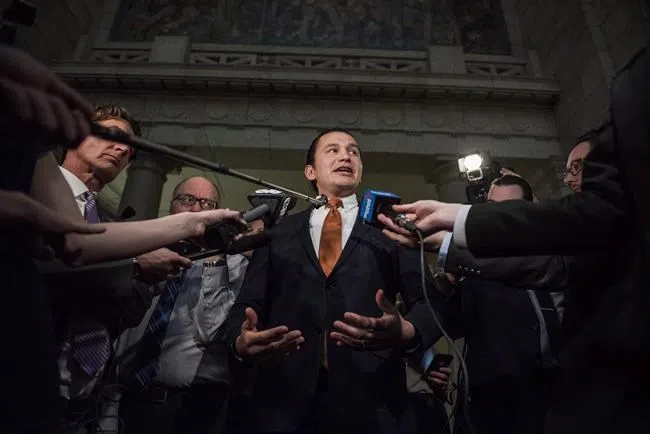
Manitoba NDP may campaign on higher income and corporate taxes in 2020
BRANDON, Man. — Manitoba’s Opposition New Democrats appear set to campaign on higher corporate and personal income taxes in the next provincial election, promoting the idea as an alternative to the Progressive Conservative government’s cuts to health care and other services.
NDP Leader Wab Kinew said details of the campaign platform will be worked out closer to the election slated for October 2020. But in an interview with The Canadian Press at his party’s annual convention on the weekend, Kinew said he was eyeing raising taxes on high-income earners and large companies in order to preserve government programs.
“I think you ask the highest income earners, such as myself, to contribute back to society and you ask the largest corporations to contribute as well,” Kinew said.
“The details of what exactly we’ll be proposing, I think, will be released as we get closer to the election. But broadly speaking, I think most Manitobans understand that for those people who are low and middle-income, the government should be there to help. And for those of us who have been lucky … part of being a successful person means giving back.”
